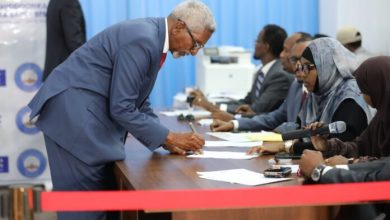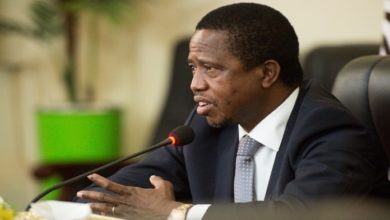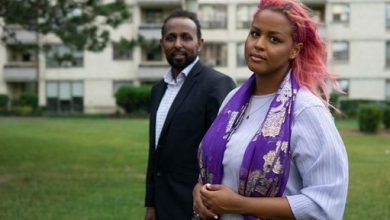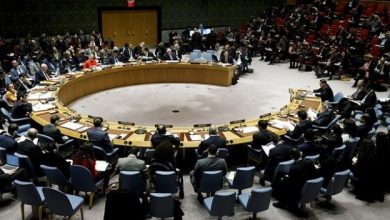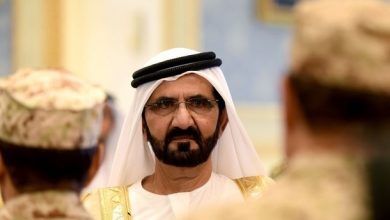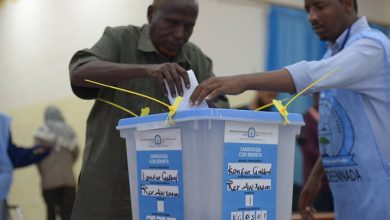New Zealand’s first African MP sparks tears as he recounts escape from Eritrea
New Zealand’s first African MP has reduced politicians to tears telling the story of his journey of “hope” from a war-torn Eritrea to a Sudanese refugee camp and eventually into government as a Labour MP.
New Zealand’s first African MP has reduced politicians to tears telling the story of his journey of “hope” from a war-torn Eritrea to a Sudanese refugee camp and eventually into government as a Labour MP.
“I’m an Eritrean. I’m a former refugee. I’m a Muslim. I’m a trade unionist and a living-wage advocate. But most importantly I stand here before you today as a Kiwi bursting with pride,” Ibrahim Omer said in his maiden speech following October’s election.
He is the second former refugee to become an MP in New Zealand, the first being Green party MP Golriz Gharaman, who fled Iran as a child.
Omer’s speech came after Jacinda Ardern made a half-hour opening address to parliament in which she reaffirmed her election pledge to declare a climate emergency, and said her priorities would be the housing crisis, managing Covid-19, and child poverty.
“We’ve always considered climate change to be a huge threat to our region, and it is something we must take immediate action on,” Ardern said of the climate declaration, to be formally unveiled on Wednesday.
Omer, recalling an initially happy childhood, said a brutal dictatorship killed the dreams he and his countrymen and women had. “I saw politics ruin people’s lives and hence I gave up my dream to be a politician,” he said.
“Nearly all my life in Eritrea there was a war.”
Omer recalled living with no power, little food, and constant fear and fighting in the street. In high school, he was drafted into the national service “with no way out”.
“I knew I had no choice but to leave before my time came – so Mr Speaker I left behind everything that I loved, my family, friends, my home and my dreams.”
Omer made his way to Sudan, and took the risk of the crossing where patrolling fighters would shoot to kill. “I would rather take the risk dying, then die a slow death in Eritrea,” he said.
In Sudan he was accepted as a refugee and told by the UN he would be sent to New Zealand. Omer knew little about the country on the other side of the globe, but the immigration officer told him it was “one of the most peaceful countries in the world”.
“And that was good enough for me,” said Omer.
“My early life in New Zealand wasn’t easy,” he recalled, saying he worked as a fruit picker, security guard and cleaner, scraping together whatever he could from his minimum-wage earnings to send back to his family in Eritrea.
“I was doing 80 hours a week. Ten years ago all I did was clean, clean, clean, day and night. I didn’t have a life, I didn’t meet people, I wasn’t active in the community, I didn’t have time to think – let alone dream.” Omer said.
Omer’s life changed when a union organiser asked him to make a public address on calls for the living wage in front of Wellington mayoral candidates.
The speech was empowering, and after a pay rise, Omer decided to begin attending university, studying politics. He continued working as a cleaner at Victoria University at night while attending classes in the day, often sitting in lecture theatres he’d cleaned the night before.
The Christchurch terror attack in March last year was “terrifying”, Omer recalled, and he feared New Zealand would descend into violence against Muslims.
Instead, the community was showered with aroha [love] and Kiwis’ reaction reinforced his commitment to New Zealand and the politics of kindness espoused by Jacinda Ardern, whom he thanked for being of great “personal support”.
Omer said he loved that despite disagreeing in Parliament House, and holding fiery debates, New Zealand politicians would then “go and have a meal or a coffee together as friends”.
Omer said he would fight on behalf of workers, refugees, and “every New Zealander who is struggling on low wages”, or through a challenging time of life. “The reality is, many millions of people have not had the luck that I’ve had,” he said.
Speaking in his mother tongue, Omer said: “I see you, I feel you, I will be by your side and fight alongside you.”
Omer’s speech was met with strong emotion by New Zealand politicians, some of whom burst into song as politicians from every side of the house embraced the new MP, or bent their noses to his in a hongi, a traditional Māori greeting.
The speaker, Trevor Mallard, had to call for order three times before the long line of MPs lining up to hug Omer returned to their seat, amid laughter throughout the house.
Labour’s deputy leader, Kelvin Davis, said it was the strongest and most moving maiden speech he had ever heard, and Ardern gave the new MP a long hug.
Omer said he was proud to be part of a caucus “that looks so much like New Zealand”.
